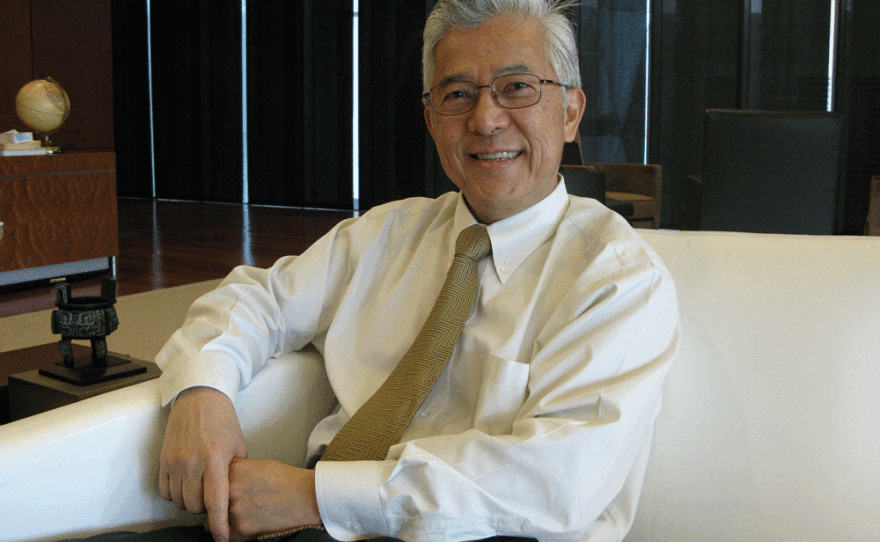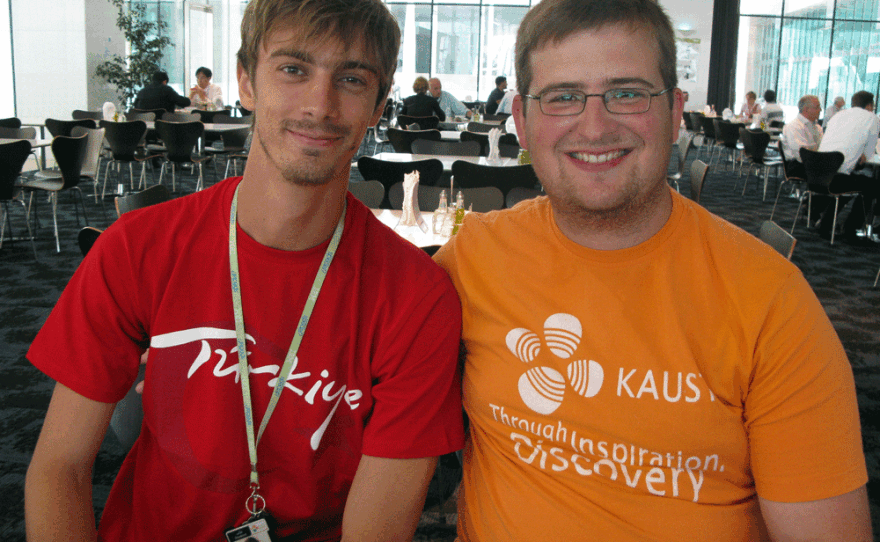How much would it cost to solve some of the world's biggest problems? King Abdullah of Saudi Arabia says about $10 billion -- that's the endowment he's given to the King Abdullah University of Science and Technology, or KAUST, a huge research facility devoted to solving some of the major problems facing the planet.
The brand new school -- it opened just this past fall -- rises from the desert north of Jeddah like the secret research lab in a James Bond movie. The desert blooms here, thanks to a private desalination plant and an army of gardeners. With a private Red Sea beach, knock-your-socks-off architecture and world-class labs, KAUST hopes to lure the world's brainiest scientists to this Xanadu for nerds.
This isn't a university in the traditional sense, says KAUST President Choon Fong Shih.
"KAUST is a global university of the 21st century," Shih says, "a place where we integrate graduate education with research and the cutting edge."
That word -- global -- is thrown around a lot in higher education these days. Every university is trying to spread its wings and go international. What's different at KAUST? Well, for one thing -- money. And lots of it. Money can buy some very nice science toys.
Take KAUST's visualization lab. It's got a room-sized video screen that shows a microscopic view of a rat's brain with stunning clarity. Steve Cutchin, who manages the lab, says this display also enables smooth video conferencing to anywhere in the world, including with his former home campus of the University of California, San Diego, halfway around the globe.

Rethinking The System
There's something else KAUST's huge budget can buy, according to David Keyes, dean of math and computer sciences.
"You can purchase good friends, and we've purchased, if you will, a lot of very good friends," Keyes says.
When he joined KAUST, he left a nice post at Lawrence Livermore National Lab in California. KAUST is "buying" allegiances, Keyes says, by handing out big grants. Stanford, for example, is getting $5 million a year to help select KAUST faculty. Other schools receive millions to do joint research. At the same time, KAUST is trying to blow up the internal structures that often lead to internecine battles at traditional universities. There are no departments here. Instead, Keyes says, KAUST pursues a "mission oriented" strategy.
"A mission-oriented program might be solar energy, as opposed to chemistry, physics, math, computer science, other things that are the disciplines that feed into that group," says Keyes.
And, in a move that may shock many educators, KAUST has done away with tenure. That's right: People here will be judged only by how many useful ideas or products they come up with.
Relationship To Islam
The first class here numbers about 400, with students from all over the world. They chow down in the light-filled cafeteria, one of the few places in Saudi Arabia where college-aged men and women rub elbows. Computer science student Luca Passone is Italian and studied in England. He says he came prepared to do without, but instead was overwhelmed by the amenities.

"We have a cinema, we have a beach, sports centers, multiple gyms. We are very, very lucky to have so many things available for us," Passone says.
KAUST has to pile on the luxuries because life can be pretty austere outside the gates. And even on campus, students cannot get alcohol or pork, which are banned in this Islamic state.
The university's relationship to the kingdom and to Islam are complicated at best.
At the KAUST museum, KAUST's PR man Christopher Sands describes the Arab world's golden age of learning a millennium ago.
"Because the king's vision has always been to try to go back to what was the original house of wisdom, intellectual inquiry and groundbreaking science and technology are deeply integrated in the values of Islam," Sands says.
In fact, the king defied conservatives in his country by going ahead with KAUST as a co-ed school in a country where the sexes are still segregated. Sands says religion is not taken into account in admissions. But in many ways, KAUST remains faithful to Islam.
Sands says there are five separate mosques on campus that accommodate thousands. But there is no place here, on or off campus, for other faiths to worship.
"People are free to worship. There aren't any official facilities for it, but people do worship in the way they wish," Sands says.
KAUST may be an anomaly in the academic world. It is less of an oddity in Saudi Arabia, which has long had special compounds for foreigners working here. KAUST clearly has the resources to succeed in the world of global research. The question is whether it will have an impact just beyond its walls, on the host country.
Copyright 2022 NPR. To see more, visit https://www.npr.org. 9(MDAzMjM2NDYzMDEyMzc1Njk5NjAxNzY3OQ001))







